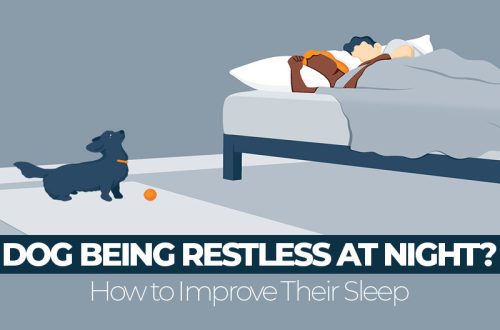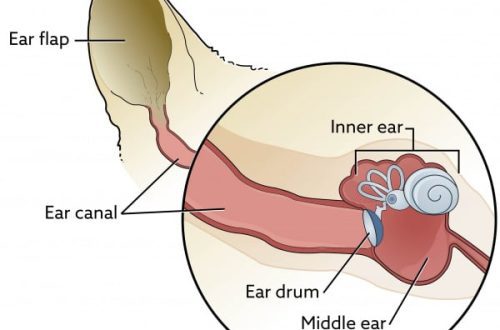
Why is a puppy misbehaving and how to wean it?
Your dog is an active, beloved four-legged member of your family. But sometimes she can test your patience. Her bad behavior can drive you crazy in countless ways. But whether your pup is to blame for an archeological dig in the trash, put his paws on grandma’s shoulders, or nearly ripped your arm off on a walk (squirrel!), you love him. However, that doesn’t mean you can’t stop bad dog habits that drive you crazy.
So, how to stop him and wean him from bad habits? Understanding the reasons why a dog does this is very important in figuring out how to deal with bad behavior. Learn about the characteristic bad habits of dogs, why they can occur and, finally, how to get rid of them.
Common Bad Habits and Why They Happen
The destructive behavior of an animal can almost always be traced back to the underlying problem. Perhaps a misbehaving dog is bored, rarely rewarded, or even sick. Here are three of the most common causes of disruptive behavior in dogs and possible solutions.
Boredom
Pets get bored when they lack exercise or other stimuli. Most of them benefit from exercise and time spent with their owners. If you don’t exercise your dog regularly or don’t find opportunities to play with him, he may get bored. Boredom can lead to bad behavior, like nonstop barking, biting your dinner table legs, or digging holes in your flower bed.
- What to do with it. Create the necessary conditions for the dog to receive physical and mental stress. Take her with you on regular walks or find another activity that both of you enjoy. Think of a variety of mentally stimulating activities, such as a puzzle feeder or a new textured chew toy. And you don’t have to spend money on it. Try freezing some of her favorite toys for a whole new experience. Or arrange an obstacle course right in the backyard of the house, using the items you already have for this. You can also teach your dog new tricks that will strengthen your relationship and keep your pet’s brain working. Or find ways to help her fulfill her natural inclinations. If your puppy, for example, loves to dig, you can divert his attention away from your garden by giving him his own sand box in which he can dig out his toys, or by carving out an unnecessary corner in your yard in which he can dig holes, like and when he pleases.
Unintentional promotion
You may not realize it, but you are the one who can cause bad habits in your dog. For example, if you let her jump on you to “hug” you, you encourage her to do the same for your guests. If you “accidentally” succumbed to those sad, pleading eyes and furtively fed the dog scraps from the table, you are encouraging him to beg. If a pet barks when it can’t reach a toy and you give it to it, you are inadvertently teaching it that barking is a way to get your attention and get your way.
- What to do with it. You must retrain your pet (and yourself) and wean her from the bad behavior that you have unintentionally encouraged. Consistency is the basis of training. You will need help from family members and other people you and your dog interact with. If you want a dog to stop begging for food, no one – not you, not your children, not your neighbor – should feed him from the table. Also make sure that you do not encourage your pet’s bad behavior by your actions. If she barks and you tell her “No” but then pet her, you are inadvertently encouraging her behavior. Finally, try to immediately and decisively stop bad behavior, otherwise the animal will not be able to associate your reaction with his act.
Possible diseases
If a pet’s behavior has changed dramatically, it is possible that some kind of ailment overcomes it. For example, a dog that you think has simply “forgotten” that it has been taught to keep the house clean may have a bladder infection. Or, according to The Whole Dog Journal, if she suddenly becomes aggressive when she has always been calm, she may be in pain or suffering from a thyroid disorder. If your dog drives you crazy by constantly scratching or licking, he most likely has some kind of skin condition, and it could be anything from parasites to food allergies. A dog that rides on its buttocks may have an anal gland disease.
- What to do with it. If you think your pet’s misbehavior is due to a medical condition, contact your veterinarian. After all, if it annoys you that your dog is itchy all the time, just imagine what it must be like for him! Your veterinarian can help you determine the root cause of the problem causing this behavior and prescribe the appropriate course of treatment, which may include simple food changes or deworming.
ASPCA (American Society for the Prevention of Cruelty to Animals) draws attention to a study conducted by the Humane Society, according to which every year 10 percent of animals end up on the street due to behavioral problems. Many of these problems can be solved by looking back and trying to understand where the dog got these bad habits. And once you understand the reason for this behavior, you can figure out how to fix the problem. Your pet’s behavior can be changed, and all it takes is consistency, increased positive motivation, and patience. And never be afraid to ask for help. And if you feel that your patience will soon run out, take your dog for training or to the veterinarian.
Remember, re-educating your pet can be a rewarding process, and when done with increased positive motivation, care and love, you can create an even stronger relationship with your four-legged friend. Dogs’ behavior doesn’t always mean they’re mischievous or can’t control their emotions – they just don’t know how to do better. Like a small child, a dog needs to be helped to understand what he can and cannot do. The more you work with her, the higher the chance that she will turn into a little gentleman.





